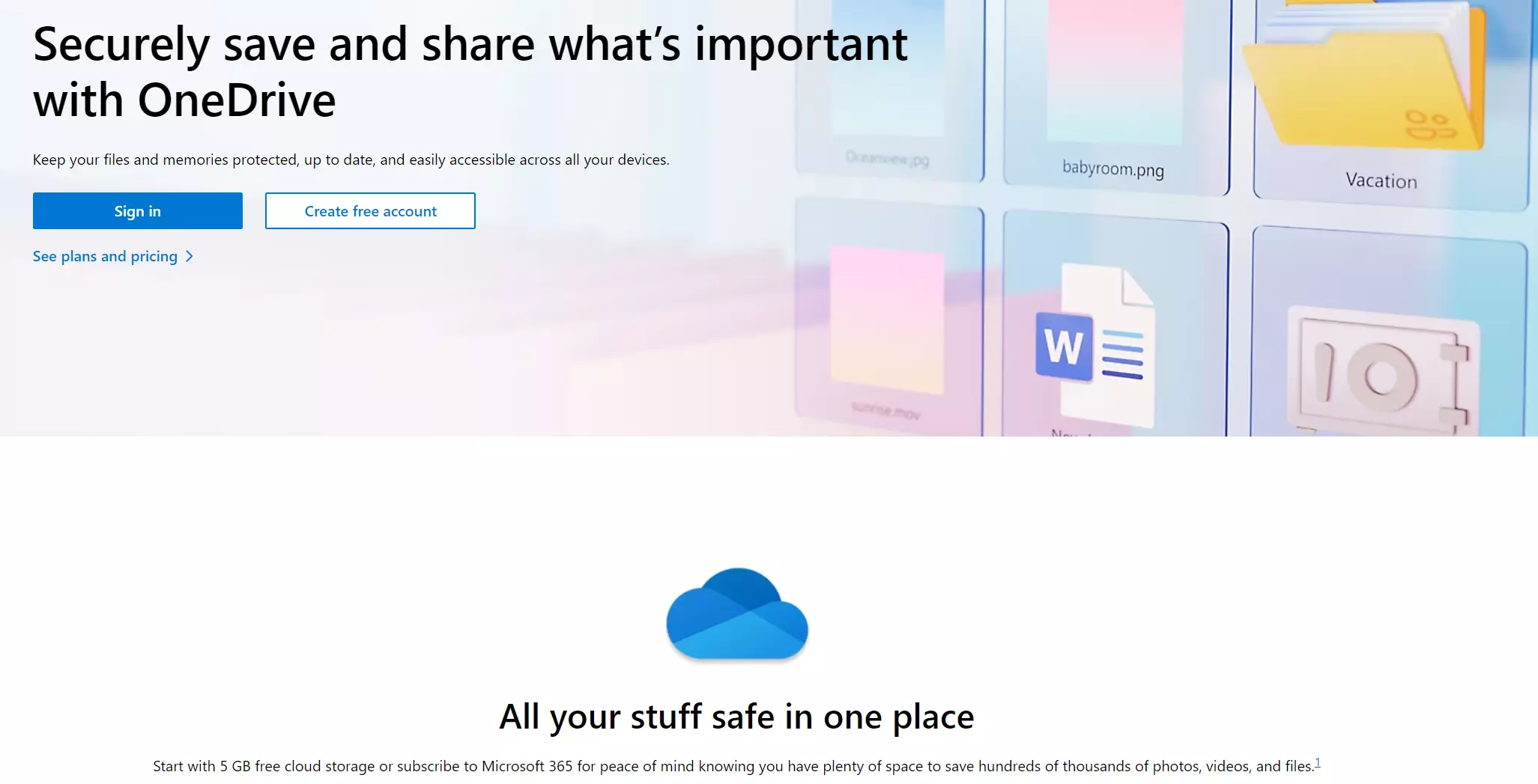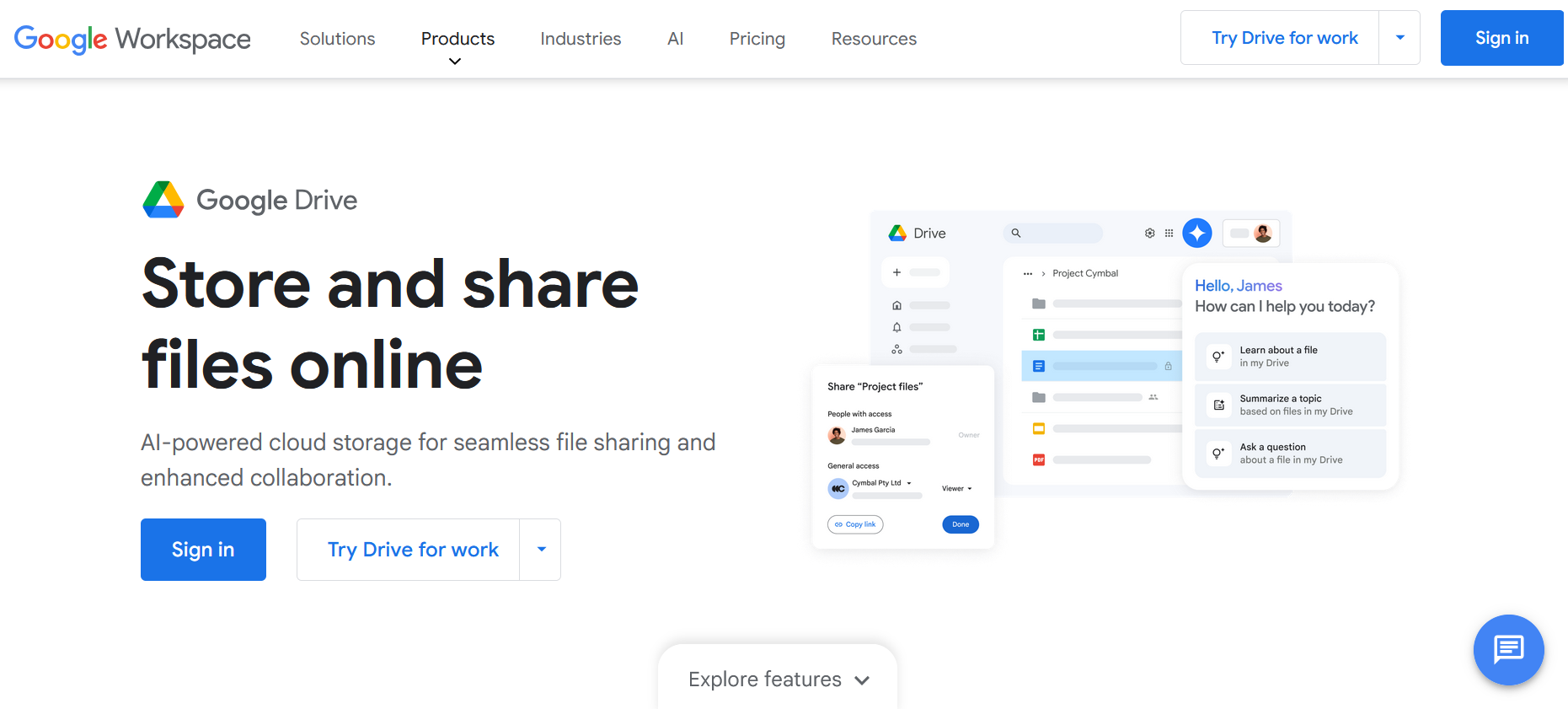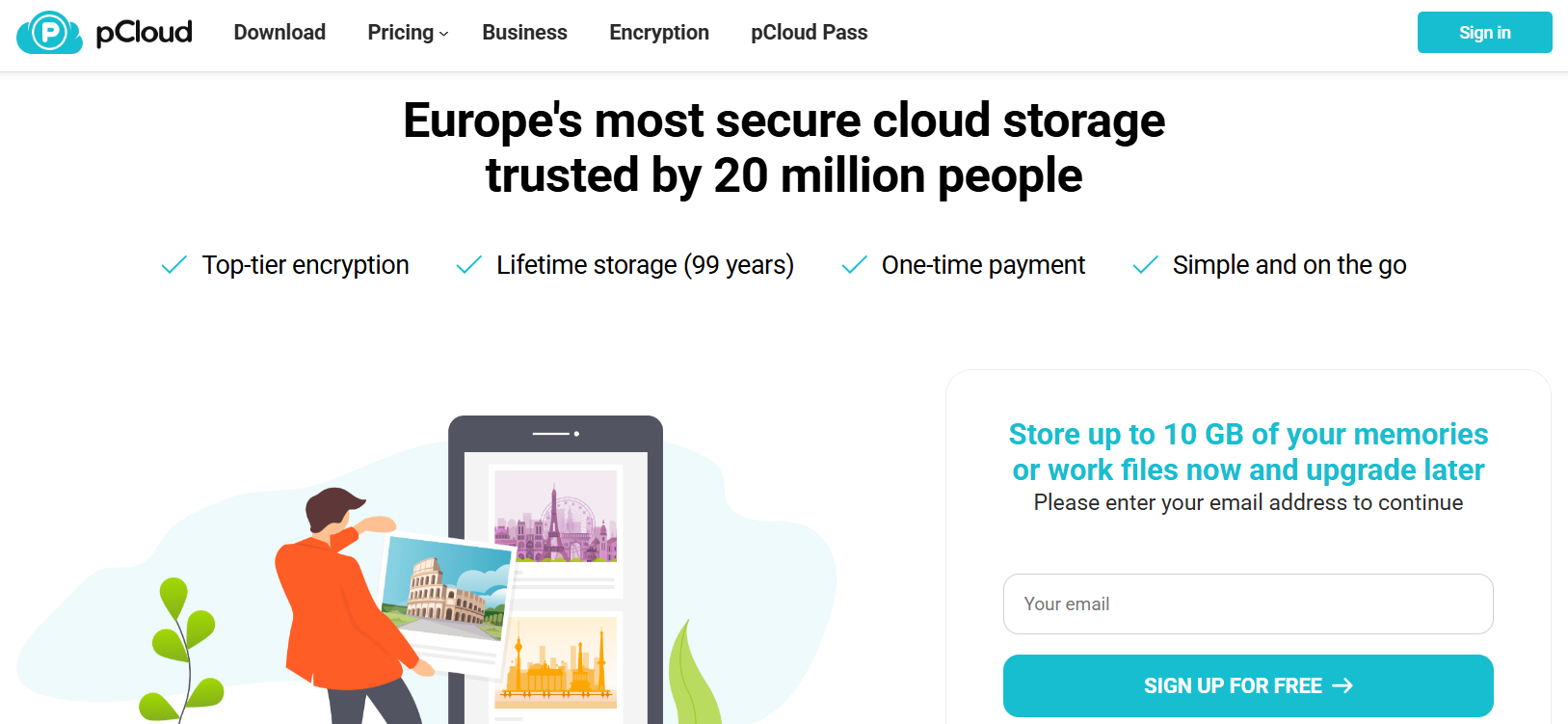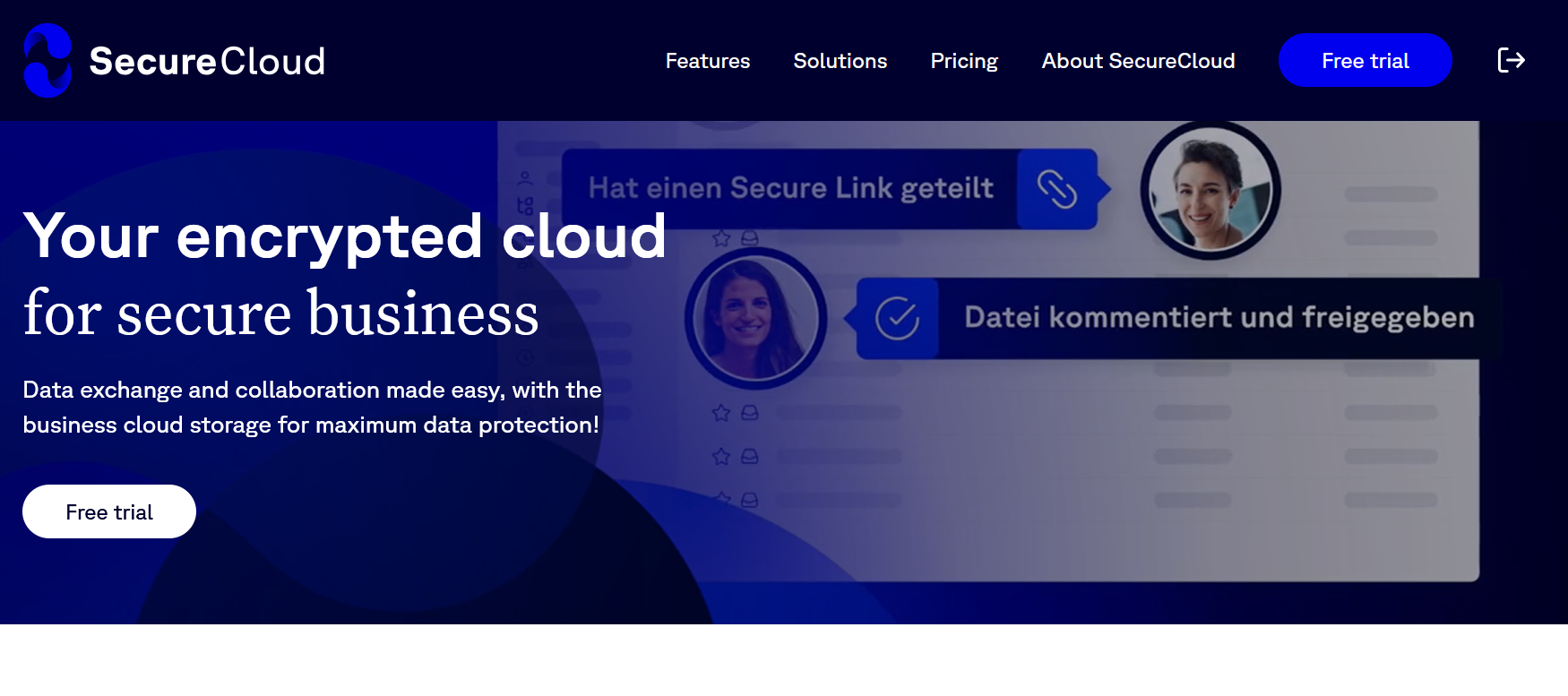What are the best iCloud alternatives? 5 solutions at a glance
It’s easy to find an alternative to iCloud. We go over what to look out for when choosing an iCloud backup alternative.
Introducing 5 alternatives to iCloud
The secure use of cloud services isn’t just about having enough storage space, but also about reliable encryption for data transmission and storage in regularly audited data centers that adhere to clear data protection guidelines. Here are five providers that offer attractive and secure services.
| Two-factor authentication | Encryption at rest | Location | Special features | |
|---|---|---|---|---|
| Microsoft OneDrive | AES-256 bit | Global | Integrated in Microsoft 365 | |
| IONOS HiDrive | AES-128 bit | EU | High security standards | |
| Google Drive | AES-256 bit | Global | Integrated in Google services | |
| pCloud | AES-256 bit | EU | Lifetime offer for lifetime cloud storage | |
| Your Secure Cloud | AES-256 bit | EU | Places great emphasis on encryption |
(Updated: March 2025)
- Store, share, and edit data easily
- Backed up and highly secure
- Sync with all devices
Microsoft OneDrive
As an alternative to iCloud, Microsoft’s cloud storage service OneDrive offers a promising solution, especially for businesses. Data stored on Microsoft servers is securely encrypted at rest using AES-256-bit encryption. Storage takes place in protected data centers, while data transmission is secured with TLS/SSL encryption. With OneDrive, you can access your data offline and from anywhere and any device. Thanks to seamless synchronization between the cloud and devices, as well as deep integration with Microsoft 365, efficient team collaboration is possible.
Key differences from iCloud: OneDrive provides a convenient balance between Microsoft products, such as Office plans, and services for iPhone, iPad, or Mac. You can easily download OneDrive from the Apple Store and use it for data backups or as a central, flexible storage and collaboration tool. Like iCloud, OneDrive offers 5 GB of free storage. However, for paid plans, the 100 GB tier (Microsoft 365 Basic) costs $1.99 per month, making it more expensive than iCloud, which offers 50 GB for $0.99 per month or 200 GB for $2.99 per month. On the other hand, OneDrive’s plan includes the popular Microsoft Outlook, adding extra value.

HiDrive cloud storage from IONOS
As a provider of domains and hosting, IONOS also offers HiDrive, a cloud storage solution that stores data securely. HiDrive impresses in terms of data protection and data processing. Its highly secure servers are located in the EU and are ISO-certified. Another advantage is that EU data centers comply with the GDPR, the EU General Data Protection Regulation. In addition to automatic cloud backups, you can also benefit from automated synchronization. This ensures that data is kept up to date across all devices and in the cloud, enabling device and location-independent access and decentralized teamwork.
Main differences to iCloud: While IONOS HiDrive isn’t free, on-demand plans are inexpensive, costing just $1.50 for 100 GB per month. By comparison, iCloud charges $0.99 per month for only 50 GB. You get 250 GB for $2.99 a month and a Business plan comes with 1,000 GB. Here, you pay only $7 per month, making HiDrive an extremely attractive option for businesses or users with high storage needs.

- Store, share, and edit data easily
- Backed up and highly secure
- Sync with all devices
Google Drive
Alongside OneDrive, Google Drive is one of the most widely used cloud services worldwide and a popular iCloud backup alternative. Many private users comparing Dropbox or Google Drive choose Google Drive—primarily because of its deep integration into the Google ecosystem. Services like Gmail and Contacts are linked, and Google Drive comes pre-installed on Android devices.
To get started with Google Drive, all you need is a Google account. This is connected to the Drive cloud, which lets you create backups for data and secure email traffic in a single click. In addition, Google services like Docs, Spreadsheets, and Forms, as well as many third-party apps, are easy to integrate. You can use any device to share, synchronize and download or upload data.
Main differences to iCloud: Google Drive provides powerful cloud storage with 15 GB free. You can increase the amount of storage for an additional cost. With Google One plans, you get 100 GB for $1.99, 200 GB for $2.99 and 2 TB for $9.99 per month. Data is stored on high-security servers located in the U.S. and data transfer is AES-256 encrypted.

pCloud
pCloud is a cloud storage service from Switzerland that features TLS/SSL and AES-256 encryption and offers a user-friendly interface. It adheres to Swiss data protection laws and its EU servers are certified with ISO 27001 (IT security) and ISO 9001 (quality management). For enhanced security, clients can opt for pCloud Encryption, a paid service that lets you add encryption on the client side. pCloud is popular for storing media content and comes with a pCloud web player, music lists and cloud streaming. If you need to store media data with lots of gigabytes, pCloud is an attractive solution for backups. Thanks to synchronization and business plans, the cloud service is also suitable for business use.
Main differences to iCloud: pCloud offers a free plan with up to 10 GB of storage. 500 GB is available for $4.99 per month and 2 TB for $9.99 per month. A unique selling point of pCloud is its lifetime storage offer. This means you get lifetime cloud storage for a one-time fee. pCloud currently offers 500 GB that can be stored for a lifetime for a one-time fee of $199, 2 TB for a one-time fee of $399 and 10 TB for just over a thousand dollars.
(Updated: March 2025)

Secure Cloud (formerly Your Secure Cloud)
German cloud storage provider Secure Cloud boasts AES-256 encryption for data at rest and secure SSL encryption for uploads and downloads. Servers are located in secure, ISO-certified data centers in Germany. End-to-end encryption of data means that even the provider can’t access the data. Secure Cloud is suitable for private users looking to outsource large amounts of data and those interested in regularly backing up their iPhone, iPad or Mac. Small and medium-sized businesses valuing web office, rights and role distribution, and teamwork will also appreciate Secure Cloud.
Main differences to iCloud: Secure Cloud does not offer free storage but focuses on custom, secure cloud solutions for businesses. In the Business plan, teams of at least two users get 50 GB of storage per user for €4 (around $4.50) per month, while the Advanced plan provides teams of at least 10 users with 100 GB per user for €8 (around $9) per month. For larger storage needs, custom enterprise solutions are available. Interested users can try the Business or Advanced plan for free for 14 days.


